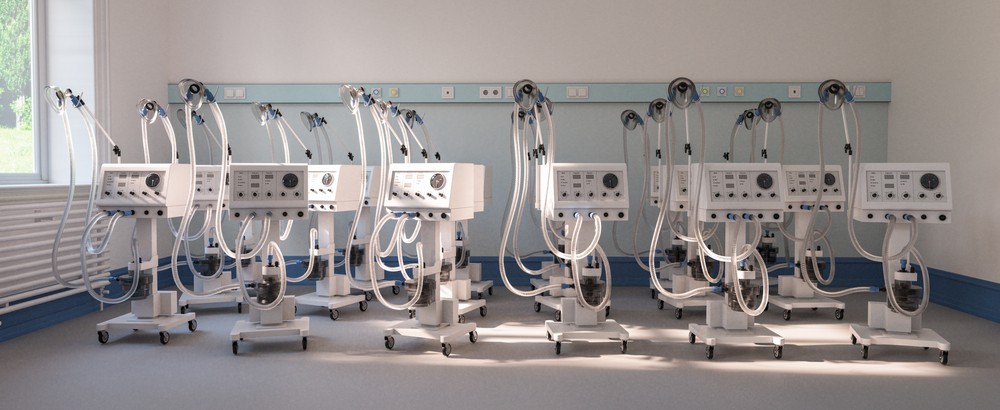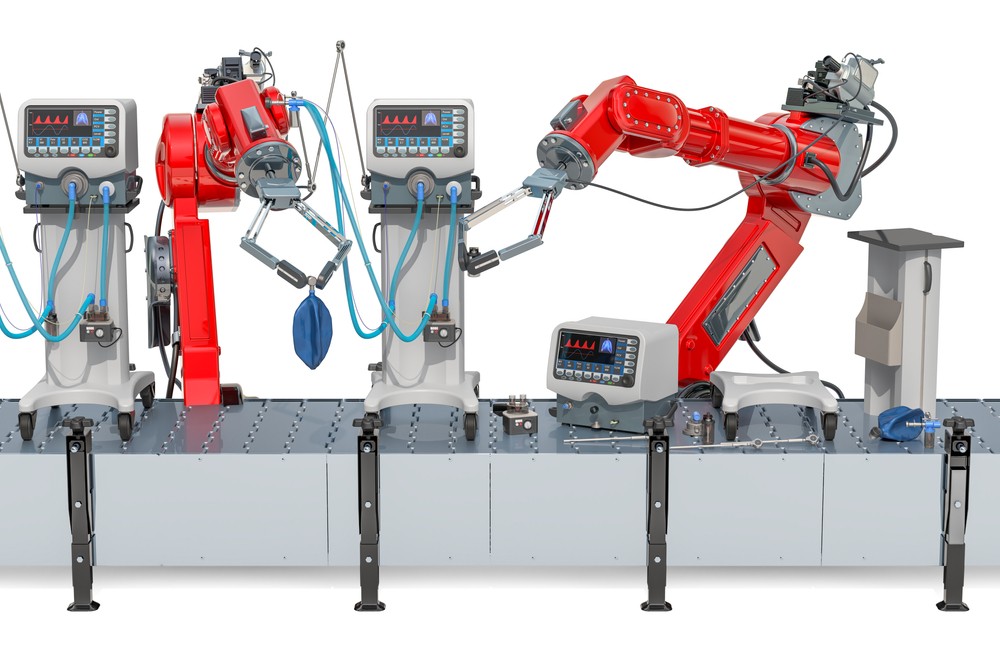More Manufacturers Join in Ventilator Production Through DPA Mandate

In late March 2020, under bipartisan pressure to combat COVID-19, President Trump invoked the Defense Production Act (DPA). The decree allows the President to mandate priority production of essential equipment and supplies as a matter of civil defense. But the President only directed the mandate at automaker General Motors (GM), leaving many wondering why more domestic producers weren’t included.
Now, a week later, the DPA has expanded to include other companies as production of ventilators, personal protective equipment (PPE), and other life-saving materials ramp up. Six companies will join GM in shifting production: General Electric Co., Hill-Rom Holdings Inc., Medtronic Public Limited Co., ResMed Inc., Royal Philips N.V., and Vyaire Medical Inc.
In a second mandate, 3M is tasked with ramping up production of N95 respirators, of which there’s a growing shortage.
Why the wait?
Many who pushed for President Trump to enact the DPA questioned the initial order, which only mandated GM to shift production. Many became further confused when the President expanded the order a week later, questioning the delay.
The President himself is quoted saying, “frankly, they don’t need someone to walk over there with a hammer and say do it.” This sentiment seems to indicate the President believed other companies would willingly follow GM once the DPA was enacted. Indeed, many did. Honeywell and Ford, for example, both announced shifts in their production focus shortly after the DPA announcement. Honeywell is ramping up its production of N95 face masks, while Ford has announced its intention to produce 50,000 ventilators in 100 days.
But these voluntary production shifts haven’t been enough — hence the President’s expansion of the DPA. On top of this, news about a depleted national medical stockpile has come to light, fueling increased urgency for essential equipment.

Manufacturing is working overtime
Despite the still-limited scope of the DPA, more and more manufacturers have joined the fray in the fight to combat COVID-19. Some have begun producing durable medical equipment and PPE, while others without the necessary manufacturing capabilities have deployed their expertise in creative, potentially life-saving ways.
Dyson and Grey Technologies, known for their vacuum and turbine designs, have collaborated on designs for a low-cost ventilator with less complex production. Small manufacturers in Ohio have banded together to source essential materials directly to area medical centers. Manufacturers from across the sector are contributing what they can to the fight — from raw materials and supplies, to production capabilities, to expertise and manpower.
Will Trump expand the DPA?
The President’s hesitation to initially expand the DPA tells us he’s unlikely to continue directing manufacturers under its authority unless he absolutely has to. Rather, his intent is to create industry stewards that urge other manufacturers to follow. This approach lessens the overreach of government authority and positions manufacturing to reap the benefits of self-regulation in a time where demand is at an all-time high. It’s an opportunity for domestic manufacturers to prove their commitment, capitalize on available contracts, and distinguish themselves in the fight of a generation.
DPA mandate or not, manufacturing’s role in the fight against COVID-19 is shaping up to be a significant one.
